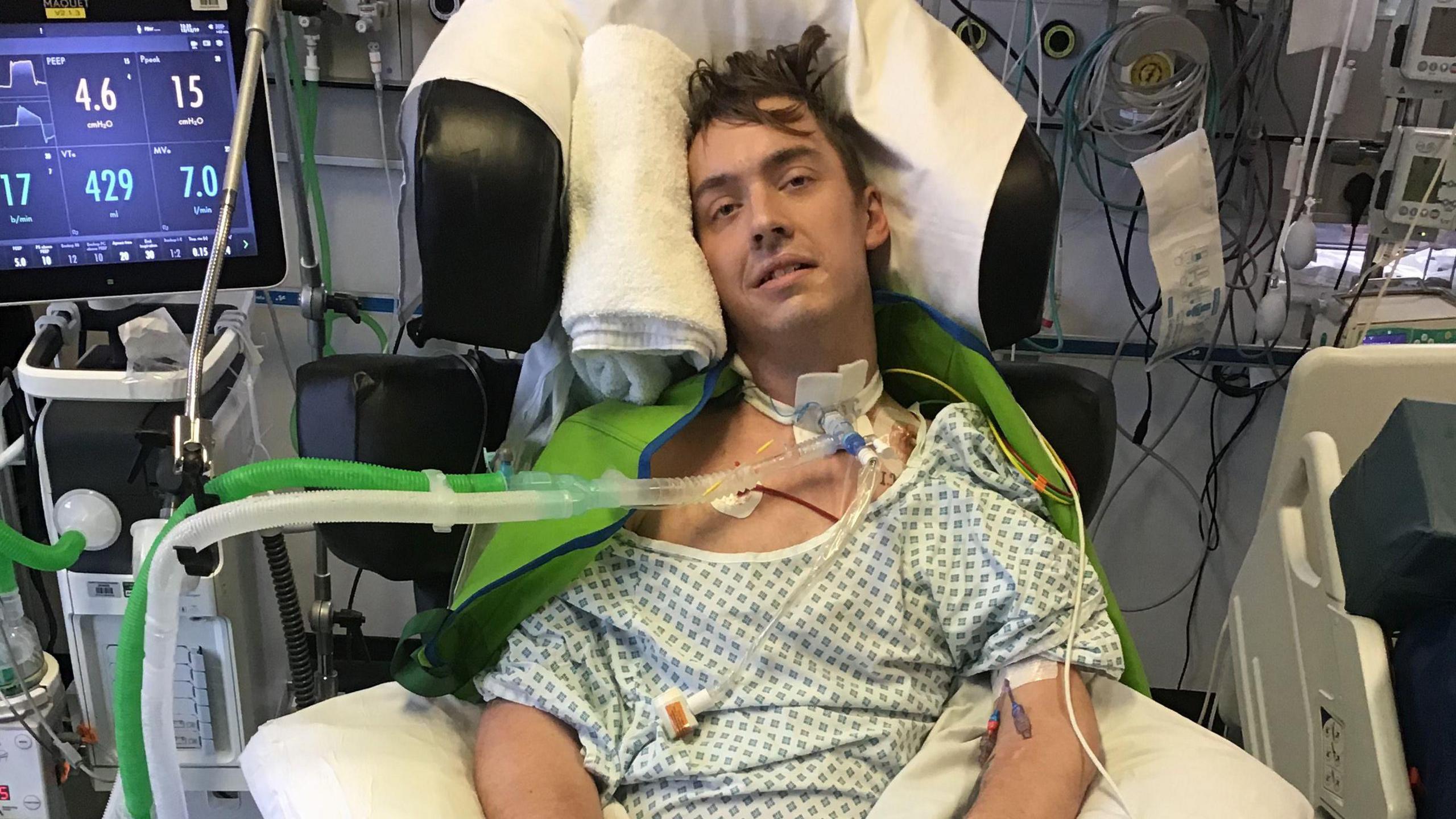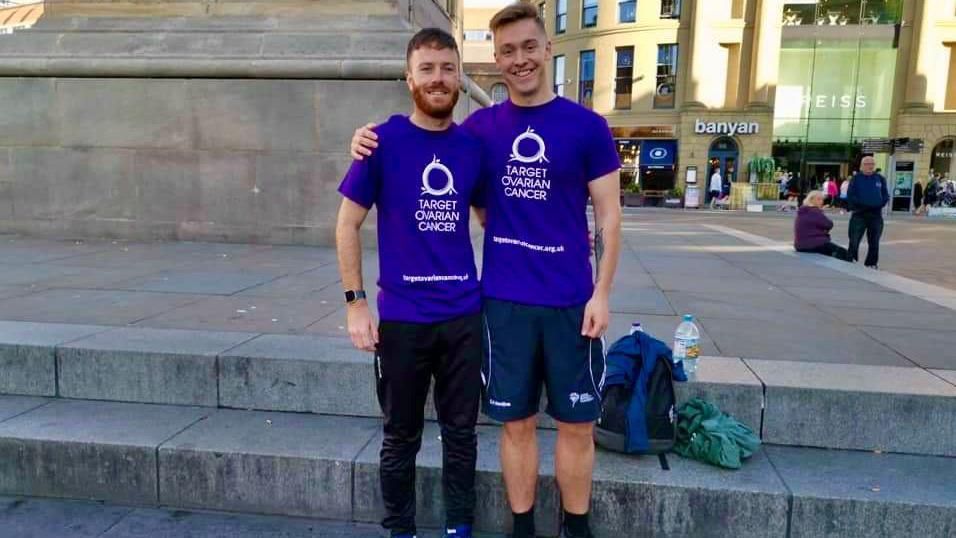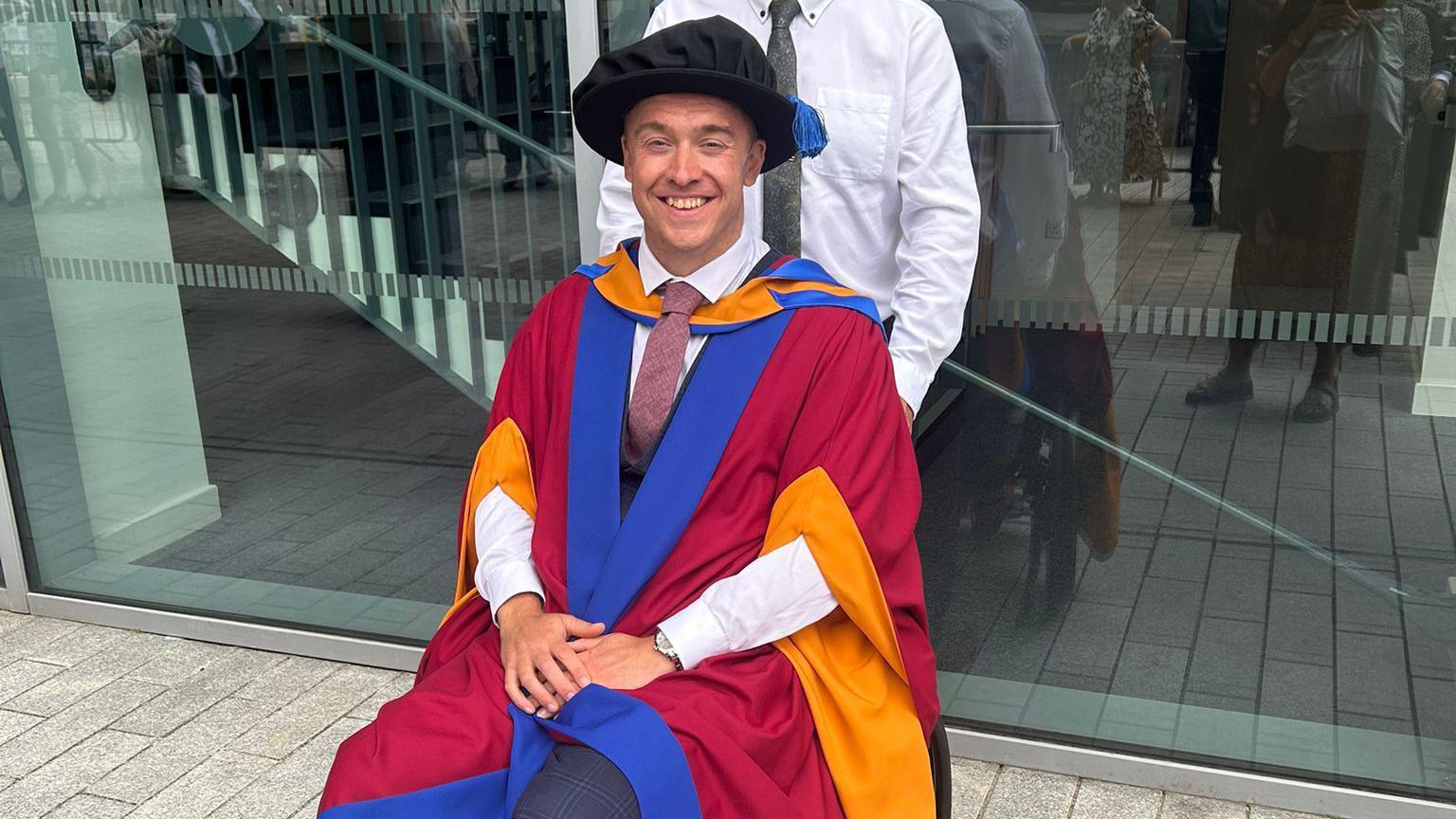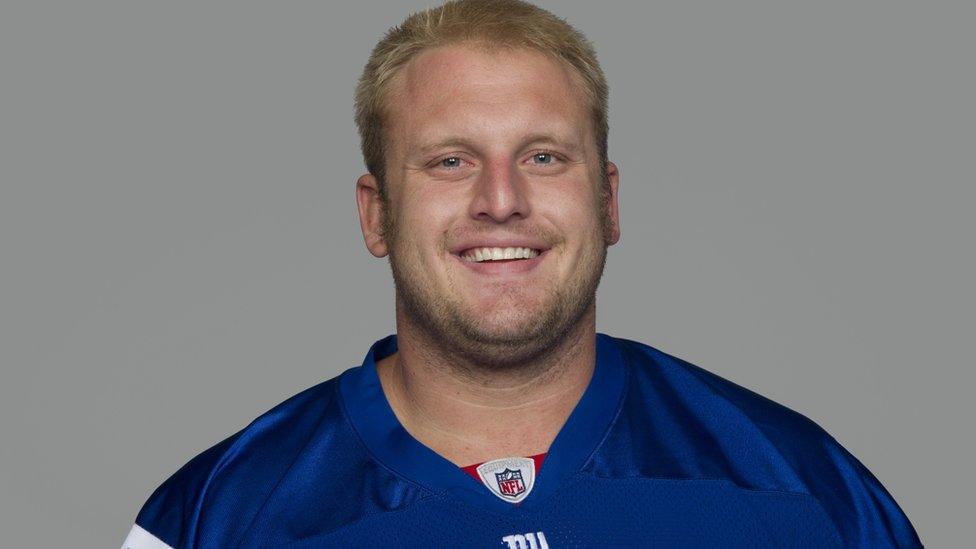'My organs failed after I got heatstroke at the Great North Run'

Luke Oldfield suffered multi-organ failure and a brain injury after being discharged from hospital too early with heatstroke
- Published
A Great North Run competitor was left with life-changing disabilities after being discharged from hospital too early when he developed heatstroke.
Luke Oldfield collapsed at the finish line of the run in Newcastle in 2019 and was taken to South Tyneside District Hospital in South Shields.
Despite his condition, the 25-year-old from Thirsk was sent home hours later and soon after suffered multi-organ failure and a severe brain injury, resulting in permanent mobility, speech, and vision impairments.
South Tyneside and Sunderland NHS Foundation Trust, which runs the hospital, has since apologised and said staff should have monitored him for longer.
The trust's executive medical director, Dr Shaz Wahid, said: "We are sorry that we did not keep Luke in hospital for longer when he arrived with us showing signs of heatstroke after taking part in the Great North Run.
"Although it is not clear whether this would have changed his overall health outcome, there is no doubt that we should have monitored him for a longer period of time and for that we wholeheartedly apologise."
Dr Wahid said steps had since been taken to "prevent this from happening again".

Mr Oldfield took part in the Great North Run to raise money for Target Ovarian Cancer
Heatstroke happens when the body's core temperature is rising too high.
Symptoms include a body temperature of over 40C, fainting or losing consciousness, a seizure or fit, severe difficulty breathing and skin that is cold to the touch.
According to the NHS, heatstroke is a potentially life-threatening condition and should be treated as an emergency.
Mr Oldfield, a Leeds Beckett University PhD student, said he was given intravenous fluids at the hospital but was soon sent home without safety advice on signs and symptoms to look out for.
Just nine days later, he was hospitalised with acute liver failure during a study trip to Chicago and was airlifted to Detroit for an emergency liver transplant.
He later required surgery to treat swelling on his brain and compartment syndrome, a condition which cut off blood flow to his legs, and also suffered kidney damage.
"When I came round from my surgeries, the gravity of what happened started to hit," he said.
"I awoke a totally different person and one who couldn't do anything for himself."
'Life-changing'
Now a wheelchair user, he continues to experience difficulties with speech, writing, memory, fatigue, and co-ordination.
Despite the challenges, Mr Oldfield recommenced his studies and was recently awarded a doctorate.
"I know my life hasn't turned out as I thought but I'm so grateful to be alive and want to make the most of it," the now 31-year-old said.
"I just hope that by sharing my story I can not only warn others of the dangers of heatstroke but also inspire people who may be going through a life-changing event."

Mr Oldfield recently completed his PhD studies
Tracy Tai, the expert medical negligence lawyer at Irwin Mitchell representing Mr Oldfield, said she had never come across a heatstroke case as serious as his.
She said: "It's been accepted by the trust that they have been responsible and the question of whether it's caused all of his injuries is currently still in dispute."
The legal case against the hospital trust remains ongoing.
Get in touch
Tell us which stories we should cover in Yorkshire
Listen to highlights from North Yorkshire on BBC Sounds, catch up with the latest episode of Look North.
More stories like this
- Published12 August

- Published19 July 2019

- Published2 March 2024
